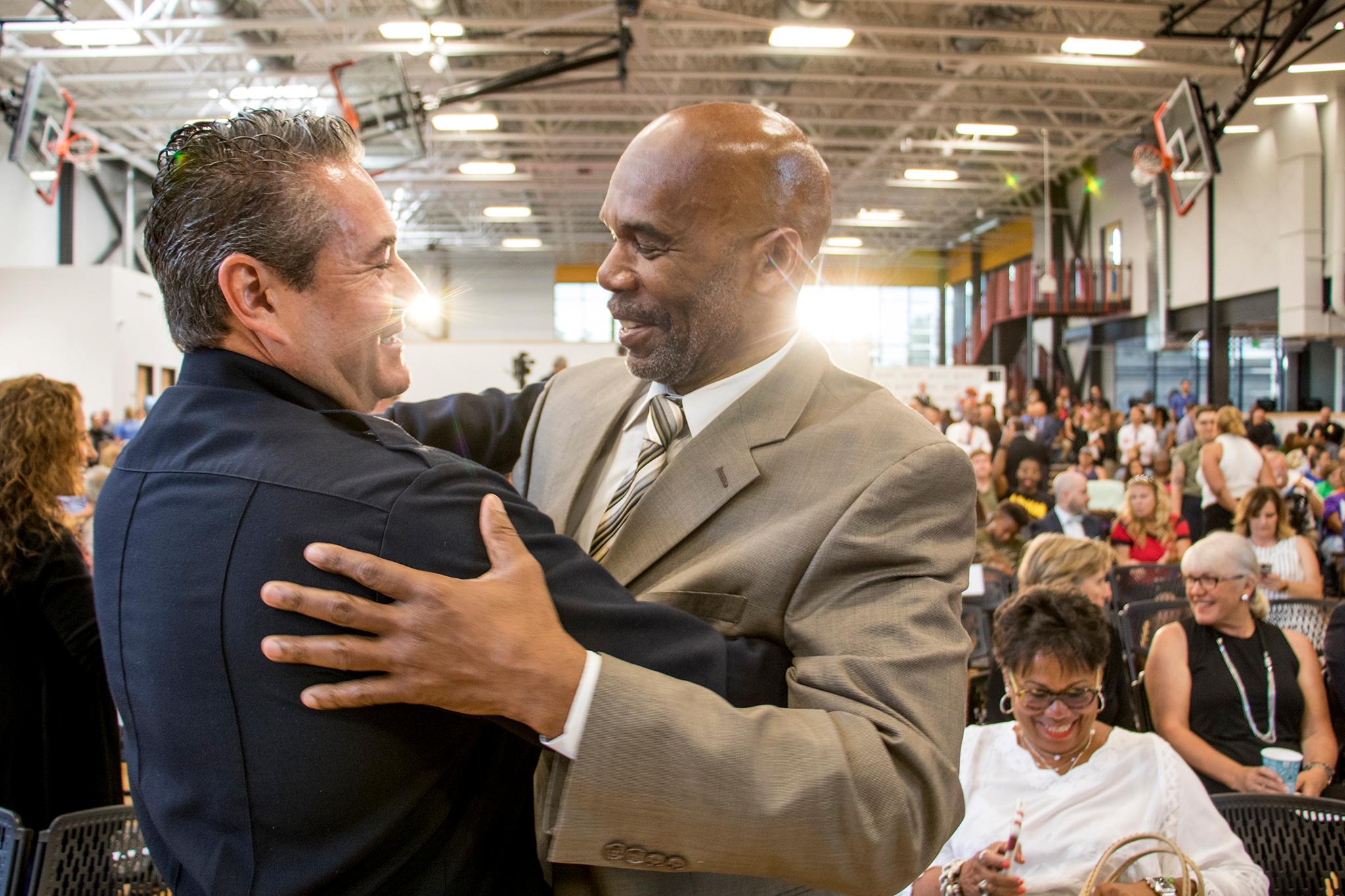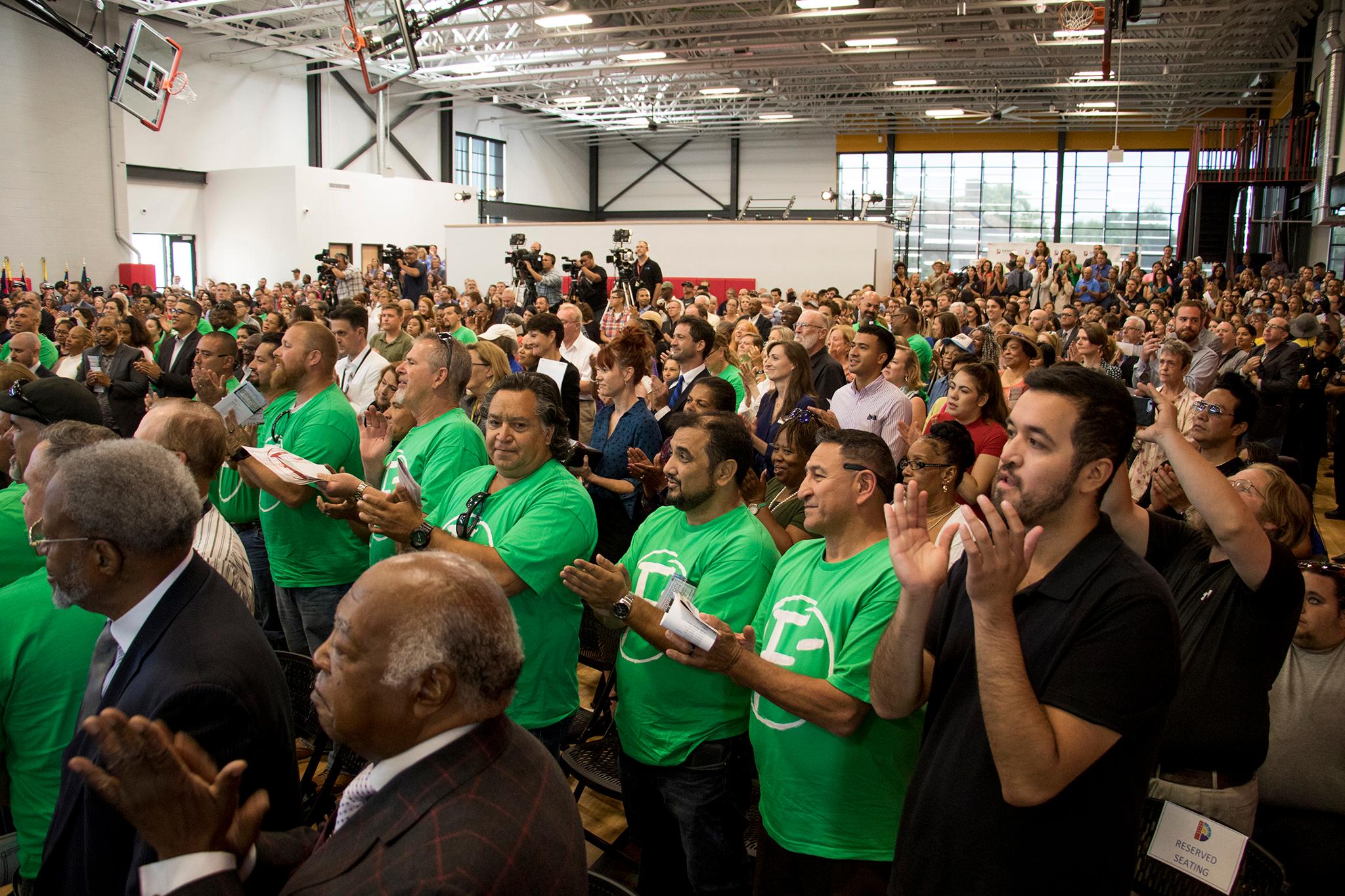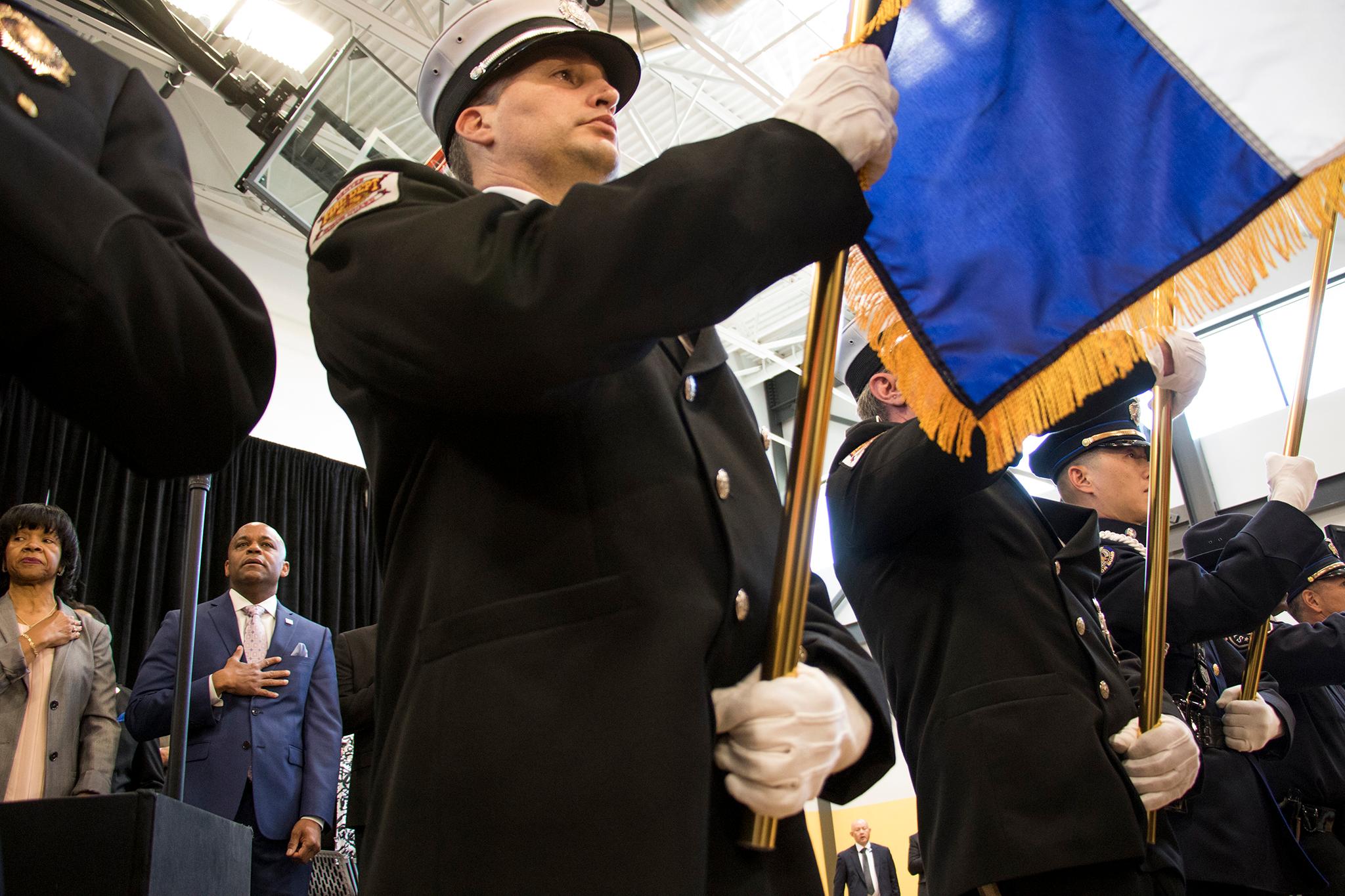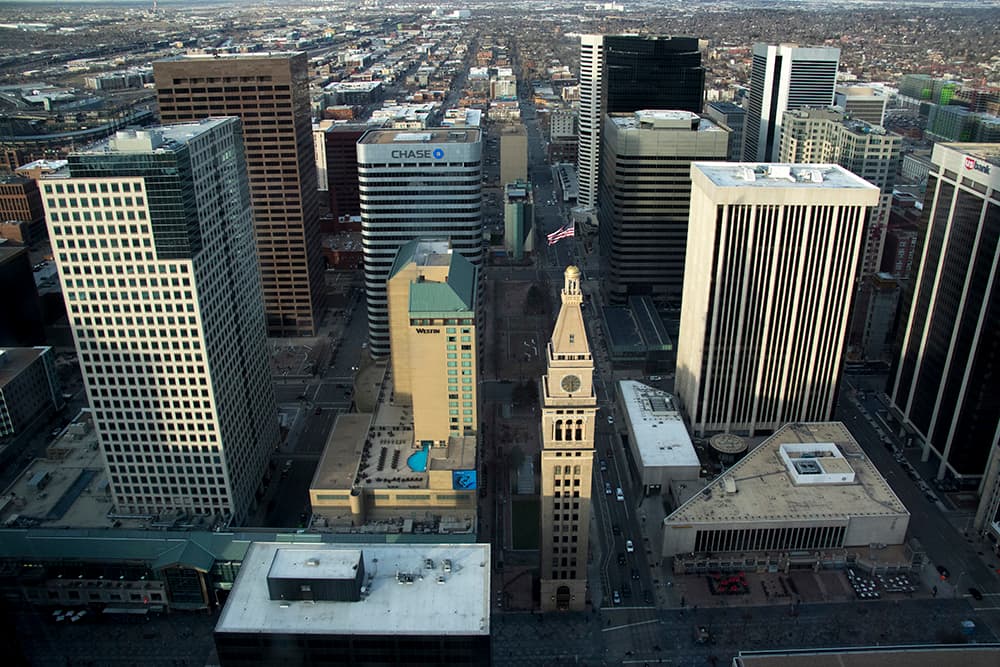Mayor Michael Hancock on Monday embraced a new phrase during his State of the City speech: "social justice."
He had never before mentioned those two words in his annual address, according to transcripts. This year, it was a keystone of the speech, and it likely foreshadowed the themes of Hancock's re-election campaign.
In the address, the mayor tried to lay out a revised vision of development, an attempt to answer popular anger about gentrification and massive redevelopment. He didn't back away from growth, but instead said that the city had to mitigate its effects while building up public infrastructure for all.
"Denver succeeds because our people drive that success," he said. "It’s the success and vision of our people that spurred Denver to rise in the ranks."
Afterward, his election opponent Kayvan Khalatbari dismissed the speech as too little and too late. It was "clearly a response" to years of work by activists to raise these issues, he said.
And, as usual, the address came with a few new announcements.
Carbon control:
Hancock said that he would accelerate the city’s carbon-reduction goals. He wants the city government to run on fully renewable power by 2025, and he wants the entire city to run on renewables by 2030. Other cities have accomplished that goal with a mix of new power generation and by paying for credits to offset their power use.
"It is time," Hancock said, though he noted that technology and costs would affect the plan.
Race, economy and neighborhoods:
He announced a new city effort — a “race and social justice initiative” that will help the city “identify, evaluate and address the economic and racial impact of new city programs” — an apparent effort to defuse criticism that Denver’s rapid growth has disproportionately benefited white and wealthy people.
And, in another new effort, city crews will walk neighborhood streets with residents to identify problems. That will start in Sun Valley and West Colfax.
Hancock also led a standing ovation for retiring police chief Robert White, who was not wearing his uniform. “I know it hasn’t always been easy, chief, but you transformed our police department,” he said. “You have helped the department regain the community’s trust and confidence.”
Transportation:
Hancock announced a plan to accelerate construction of the bike network, adding 125 new miles of bike lanes over the next five years. "It's time our streets learn to share," he said. And he said it was time for the city to take on dockless bikes and scooters. "We heard you. Now stop emailing me," he joked.
Meanwhile, he urged RTD to adopt a measure to cut fares for students and low-income residents -- and he hinted at a plan "to join with several partners to test a new shuttle service that will better connect downtown with Capitol Hill and Cherry Creek."

The mayor gave the speech in the gymnasium of the Carla Madison Rec Center.
It's a newly opened and long awaited facility on Colfax Avenue. Gov. John Hickenlooper was among those in attendance. The proceedings included an opening performance of John Lennon's "Imagine."
He anchored the speech on a historical allusion — to a century ago, when Mayor Robert Speer had just won back the mayor’s office and was finally ready to build Civic Center.
Speer "took the City Beautiful movement and transformed Denver for generations. Denver, we are clearly at another transformational moment in our history,” Hancock's prepared remarks said.
Hancock mentioned Speer seven times in his speech, building an argument that Speer had transformed Denver with infrastructure projects — similar, he implied, to those happening today. And the mayor slyly pointed out that Speer was a three-term mayor, as he runs for his own third term.

Meanwhile, protesters with the Southwest Regional Council of Carpenters union rolled out banners that claimed Hancock hadn’t done enough to support the trades. “Denver in distress,” one banner proclaimed, reflecting a tide of discontent over living costs development.
“Of course, there were skeptics,” Hancock's remarks read, “but the people of Denver chose to grow their way.” He also pointed back to Mayor Federico Peña’s initiative to build the new airport, saying that it was criticized at the time before its wisdom became apparent.
As usual, the mayor touched on stats that showed Denver’s recovery from the recession, and his own administration’s efforts to keep pace. He claimed $1 billion of economic benefit from new flights at the airport, and in the same breath called out the new My Denver Card program, which gives free access to rec centers and pools for kids and seniors.
Hancock reached for an emotional appeal, trying to convey a connection with the city. “I know the pain of feeling left behind and feeling hopeless. I don't want that for any of our people, but I know some of you feel it -- and you deserve a city that is working on your behalf every day,” he said.
Here he referred again to the City Beautiful movement and its push for public spaces. He tried to establish the connection between new infrastructure and equity — like the new Westwood Rec Center in a community that had long received less attention from the city, or the new pedestrian bridge for school kids in Elyria- Swansea, both funded by the $1 billion bond package approved last year.
And he underlined his support for affordable housing and other protections, including a plan to sharply increase city’s spending on lower-cost housing with the use of marijuana taxes. He highlighted Councilwoman Robin Kniech’s proposal to force landlords to accept Section 8 vouchers, too, which he described as "phenomenal and very powerful."
"Global cities are certainly about expanding economic opportunity, but in these times they offer something else: They are, we are, beacons of progressive values," he said, highlighting the city's attempts to protect immigrants.

As usual, the mayor called out a few people in the audience, including a woman who transitioned from life on the streets to supportive housing at Sanderson Apartments. And he reserved shouts-out for Norman Harris III, community advocate and grandson of a Five Points legend, and for the redevelopers of the Rossonian Hotel -- big applause there.
"We should be elevating the people and places that make our neighborhoods so special," he said. "They should be added to, not displaced or replaced.
Meanwhile, he called out Ink Coffee by name for its incendiary gentrification-themed advertising in Five Points. "That was one of the most stunning, disappointing and painful moments I've ever experienced in this city, serving as mayor," he said, deviating from his prepared speech.
"All of Denver's people and neighborhoods will rise, will rise together," he said.
Khalatbari responded with some proposals of his own.
Khalatbari took a page from the U.S. Congress and its State of the Union, offering a rebuttal from the opposition.
Khalatbari, who is one of several challengers, said city policies are making things harder for people to improve their lives. He added that he has been in situations where he had doubts about how he would keep a roof over his head. He said it's time for people to decide what the city is going to be.
“We are at a pivotal moment as a community,” Khalatbari said. "We have grown rapidly over the last decade. This growth has been poorly managed and has led to displacement and a dramatic surge in the cost of living and tensions in our community."
In an interview, he said that he wants the government to build more housing itself, in contrast to the current administration's focus on subsidized private development. He also called for the city to fund free college and trade education for Denver Public Schools graduates at institutions including the Community College of Denver, Metropolitan State University and Emily Griffith Technical College. And he said the city should create its own bank to fund projects.
Khalatbari said he wants an honest, transparent and compassionate government. He said housing is “a human right, not a commodity to be bargained over with developers.”
Esteban L. Hernandez contributed to this report. Updated with further detail on Khalatbari's plans.












